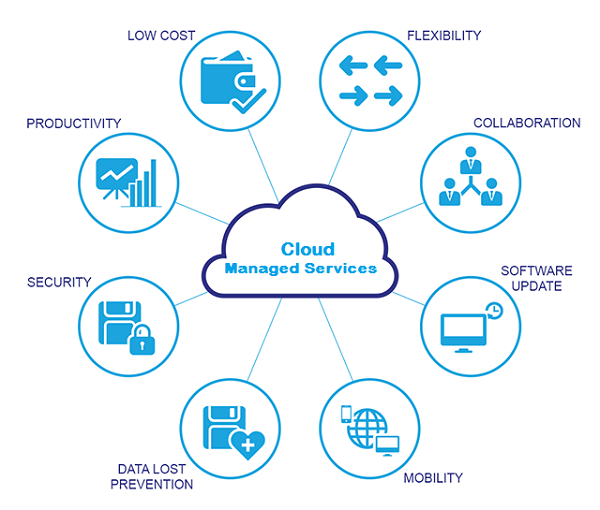The world’s dynamics have changed. As a result, numerous companies are turning to the cloud, leaving vendors and other service providers of various industries to question their adopted approaches. With major cloud services like Google, AWS, and Azure ruling the marketplace, more secure and affordable cloud migration solutions are cropping up.
However, despite the developments made in cloud management among organizations, they still encounter some bottlenecks along the way. To solve this, turning to cloud managed service providers could be helpful.
Why not just grab some of the best considerations before going for signing up with a helpful MSP? But before that, let us explain to you first what is an MSP.
Definition of Managed Service Provider
Cloud vendors today are constantly evolving and this has made it difficult for organizations’ IT staff to stay on top of the latest solutions. The beneficial advantages of managed service providers are free from IT-related hurdles, and offer them the feel of confidence in the prominent expertise for cloud features and developments. They simply make sure that you get the best of the best in cloud solutions. This applies to both startups and traditional enterprises that are embracing the cloud as part of their digital transformation.
The cloud managed service provider will be your technology partner, protecting your data and making them available at all times. As why shouldn’t just make the best decision if the question is about picking the most suitable MSP? Here are some things to evaluate to arrive at the best decision.

1. Skills and Specific Expertise
It is essential that a cloud managed service provider is equipped with relevant skills and experience as this could affect your organization’s efficiency, uptime, and overall processes. It also plays a significant role in ensuring that your business remains competitive. Some questions you can ask to determine and evaluate the MSP’s expertise and skills include:
Does a managed service provider have the expertise to run a heterogeneous IT environment? Oftentimes, organizations use different computers, operating systems, and databases from various vendors. As such, the MSP partner should be able to support different computing environments.
Do they have the latest technology? Freely ask your managed service providers about the features they have included for their recent customers and never forget to learn about the delivery experience. Who are their target clients? Are they serving traditional businesses or startups? While big companies may require highly scalable security services, a startup might be best served with a more basic cloud deployment that ensures the safe migration of data from company computers to the cloud.
Do they specifically serve in a particular industry, such as gaming, data, healthcare, or banking? Note down the response for help in better understanding. Take note of their reputation for excellence.
2. Security and Compliance
When choosing a cloud managed service provider, another factor to consider is security. Check if they are certified to run the specific type of cloud at the level you want. Ask if they have any kind of certification or partnership – whether AWS APN Consulting Partners, Azure Partners, or Google Cloud Partner Advantage.
Here are the other questions you can ask:
- Does your MSP require its employees to have individual certification? What level is their employee certification (for example, architecture, admin, DevOps, security engineer)?
- Do you have a compliant environment? What physical measures do they put in place to secure their teams and infrastructure? Having compliance shows the organization’s level of maturity.
- Are they in accordance with the regulations that apply to your industry? For example, is your organization in the healthcare industry HIPAA compliant? Is your ecommerce business PCI compliant?
3. Resource Allocation and Management
Your cloud managed service provider also acts as a middleman for various services such as basic computing and storage, as well as capacity resources. The MSP, as a broker, manages a multi-tenant shared environment in which each tenant is a completely separate customer account environment with its own applications and data systems.
Make sure that they are completely transparent. Having transparency allows them to allocate resources for optimal utilization and minimal costs.
4. Potential Cost Savings
The key to successful cloud adoption is efficiency and optimized controlled costs. In fact, cloud storage is employed by multiple departments in large and successful enterprises.
- Can the cloud managed service provider highlight wasted, idle resources, and consolidate them to optimize the level of utilization across the organization?
- Can the MSP provide a volume discount on cloud usage due to its ability to combine resources effectively? As MSPs typically serve multiple accounts and have a high consumption rate among the major public cloud vendors, they can also provide a volume discount on their cloud services, effectively acting as a volume reseller.
If you are looking for a trusted managed service provider, contact ITarian and let us guide you in transitioning your business to a better digital environment.